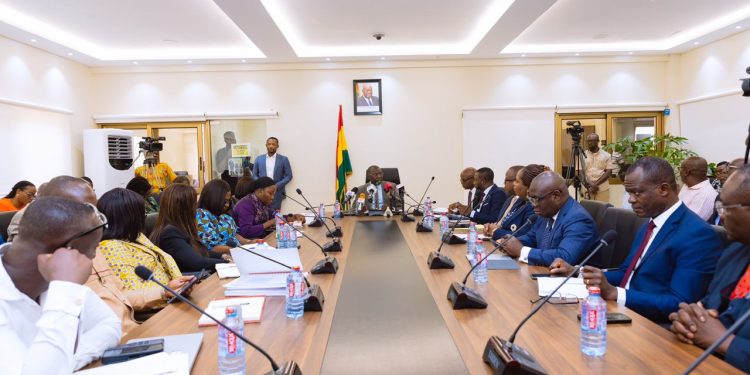adverts
The Government of Ghana has successfully restructured $1 billion in legacy debt owed to Independent Power Producers (IPPs), marking a significant milestone in the country’s energy sector reform efforts.
Finance Minister Mohammed Amin Adam made this declaration on July 1, 2024, at a joint press conference with the International Monetary Fund (IMF) and the Bank of Ghana (BoG).
“Negotiations to restructure over $1 billion in legacy debt have been successfully concluded with several IPPs,” Minister Adam declared. “With this agreement, Ghana will have a more stable and dependable supply of electricity in the future in addition to financial relief.”
adverts
The goal of the multi-month-long negotiations was to restructure Power Purchase Agreements (PPAs) and pay off arrears that had accumulated throughout years of financial hardship in the energy industry.
During his speech, Minister Amin Adam emphasised the accords’ strategic significance in revitalising Ghana’s energy infrastructure and promoting economic expansion.
Restructuring PPAs with IPPs such as Sunon Asogli, Karpowership, Amandi, CENIT, Cenpower, AKSA, and Amandi will improve operating efficiencies and relieve financial strains. This project demonstrates our dedication to advancing sustainable development objectives and addressing persistent issues in the energy sector,” he said.
Revisions to contractual responsibilities and updated payment conditions are important elements of the agreement that are meant to guarantee that IPPs get paid on time and keep meeting Ghana’s energy demands continuously. Minister Adam pointed out that parliamentary approval is necessary to ratify altered terms under some agreements, including those with Amandi, Cenpower, and Early Power.
According to him, the restructuring initiatives are a component of Ghana’s larger Energy Sector Recovery Programme (ESRP), which aims to improve sectoral resilience and solve structural issues. The Minister expressed confidence in these reforms’ transformative power on Ghana’s economic growth trajectory and stability.


